From Rx Leaf link to article by Sean Wallace, July 13th 2019
Sovereign First Nations have the cannabis business figured out.
“We’re the most capitalistic people in the world,” Robert Tehonikonrathe, aka Fisher, recently told the Toronto Sun about his Mohawk Nation. This may come as a surprise to European descended North Americans who see native tribes as the embodiment of socialism.
What may also come as a surprise is the 60+ dispensaries on the 70 kilometres of territory land. In addition to a booming cannabis market, the territory also appeals to outsiders with discounted cigarettes and gas.
Mohawk Territory, just east of Belleville, Ontario, has a fascinating and little-known history. In 1793, New York State expelled a group of Mohawks after they fought on the side of the British during the American Revolutionary War. The Mohawks left for British-contolled Canada. The Mohawks struck no binding deal with the Crown, and so their land is not a reserve.
Today, Mohawk Territory is a thriving destination; beautiful landscapes, outdoor activities, and community festivals… oh yeah, and lots of cannabis. The Mohawk Nation are a sovereign people who live with minimal interference from Canadian bureaucrats, and that’s just the way they like it.
“Those guys would just screw everything up here,” says Tehonikonrathe. An opinion which many Canadians undoubtedly share following Ontario’s legal cannabis rollout.
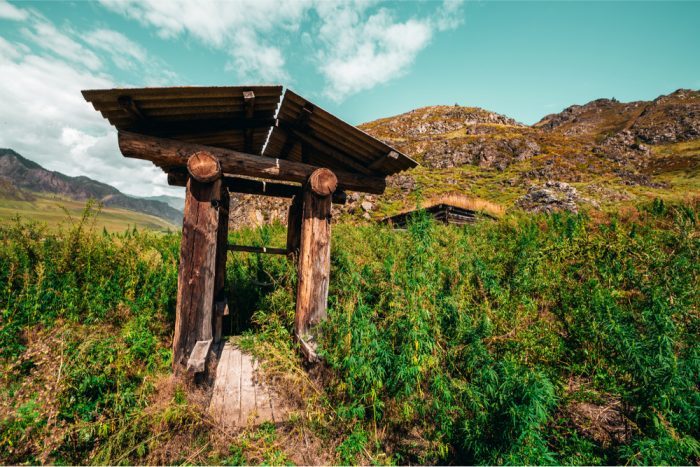
Mohawk Territory’s Cannabis Market
Tyendinaga in Mohawk Territory is home to 4000 residents. Lining main street, however, are many cannabis dispensaries. Some stores are retail locations, others converted trailers, some shops are drive-thru, and others offer 24 hour service. However, their business is the same: provide residents and tourists with a wide range of cannabis products.
Dispensaries, like Best Buds, B’Leaf, and Smoke on the Water, provide customers with high quality flower, oils, topical products and a wide range of edibles. The customers themselves are as diverse as the products; old, young, black, white, rich, and harder off. They come for many reasons; including health conditions, mental wellbeing and just to have a good time. The stores are usually busy, with clients willing to travel to get their cannabis products.
“We get people here from all over on a regular basis — Oshawa, Ottawa and parts even further,” one budtender told the Toronto Sun as she rolled a joint for a customer. “This [cannabis industry] has brought a lot of money into the community,” she says.
Mohawk Nation has Cannabis Figured Out Better Than Ontario Does
While the Mohawk Nation’s openly capitalist cannabis system is drawing tourism, attracting new customers and making the nation plenty of money, the Ontario government are still fumbling with their clumsy rollout of cannabis legalization.
Outside of native lands, Ontarians complain of a lack of retail stores, a lack of product, poor online systems, and raids of black market shops blocking access to patients.
Since Canada’s nationwide recreational cannabis legalization last year, the rollout of the new system hasn’t exactly been smooth sailing. In Ontario, the delay on opening physical retail shops angered consumers and sparked pleas to the central government for help expanding the state’s program.
“We urge the federal government to take steps to quickly increase the supply of recreational cannabis so that we can continue combating the illegal market in Ontario,” Marc Pichette, spokesman for the Ontario Ministry of Finance, says.
While the rollout continues, gray market dispensaries are thriving, but also being raided more frequently. Legalization is unlikely to shut down the gray market anytime soon. Patients say cannabis is more accessible and affordable on the gray market than in legal shops. The raids anger patients that say the illegal dispensaries are their best way to obtain medicine.
While the Ontario government figures it out, their residents will head to Mohawk Nation to purchase their weed.
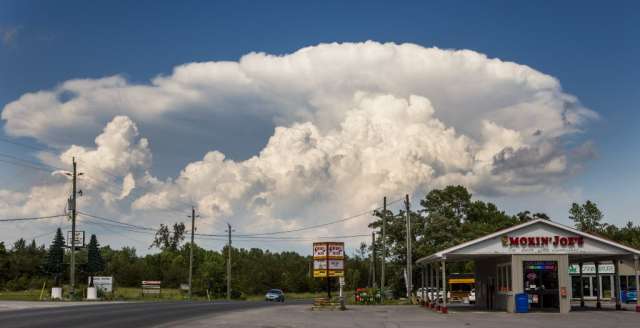
Via Ernest Doroszuk/Toronto Sun/Postmedia Network
Cannabis on Native Lands in the U.S.
While the cannabis trade is booming in Mohawk country, Native American tribes in the United States are also getting in on the action. Back in February, The Mercury News reported on the Iipay Nation’s booming cannabis trade in San Diego County, California.
The Iipay Nation opened their Mountain Source dispensary during the first months of 2019. In a sign of the Iipay’s shifting economic fortunes, the dispensary operates from a failed casino in the Santa Ysabel Reservation near Lake Henshaw. The dispensary is in the front of the casino, and the tribe plans to use the back for producing edibles and cannabis testing.
The Santa Ysabel Botanical Facility uses one fifth as much water as the old casino, and already employs nearly as many people. The Iipay Nation’s success in the cannabis trade has made them a model for other tribes hoping to cash in.
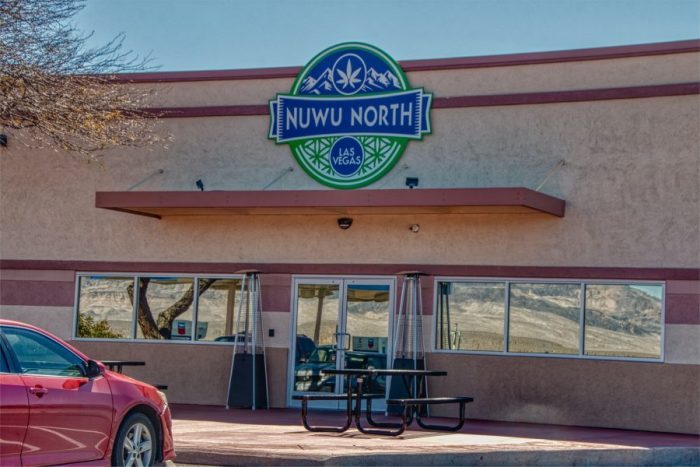
Nuwu North Dispensary on Paiute land in Nevada
While the cannabis trade is lending the tribe a leg-up in their efforts to stay “economically alive,” the reservation’s legal status complicates their plans. Under California’s cannabis laws, tribes can produce and sell cannabis on their own land, but face complications in selling their products in the wider market.
The issue comes down to licensing. In California local authorities must approve Cannabis businesses. However, cities and counties point out that they have no authority to issue permits on tribal land. The result of the legal situation is this; as of February, not a single tribe in California has a license to enter the state’s legal cannabis market. This also disallows them from marketing their products off-reservation.
Tribes are pushing back against the legal straightjacket. They’re hoping for the California legislature and Governor Gavin Newsom to draft new rules regulating their own cannabis business.
The Future for Indigenous Peoples and Cannabis
Cannabis clearly presents a big business opportunity for Indigenous communities, especially those with the freedom to make their own regulations. While legalization in Canada and the US is painfully slow, and plagued by difficulties, many Indigenous nations are seizing the opportunity to create businesses that better their communities.

Via Ernest Doroszuk/Toronto Sun/Postmedia Network
The way things are looking, Canada’s Mohawk Nation entrepreneurs will continue to push ahead. Meanwhile the state and federal governments will take their time getting their business in order.
Meanwhile, tribes in some California remain hampered by a state which seems unwilling to work with them. The situation is summed up best by Dave Vialpando of the Santa Ysabel Tribal Cannabis Regulatory Agency. He says that the Iilpay are hearing the state’s message loud and clear: “You’re not welcome.”

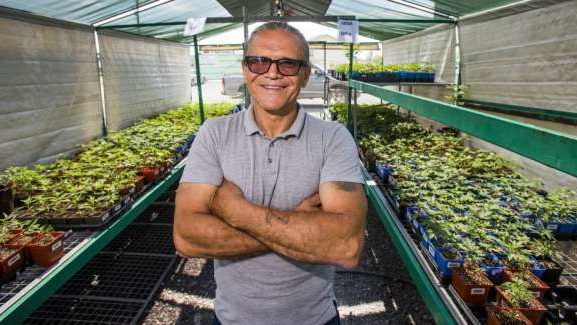
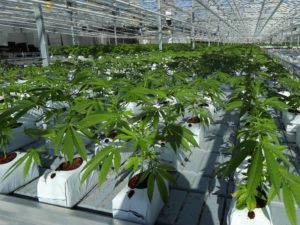
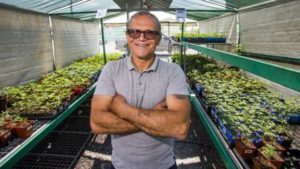
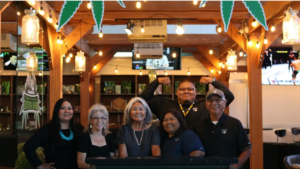





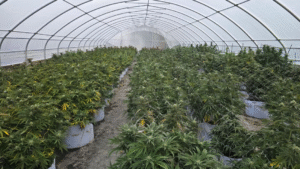
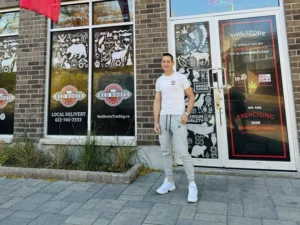
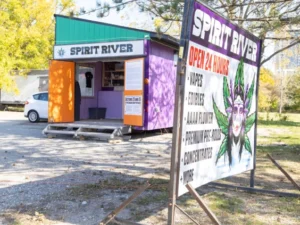
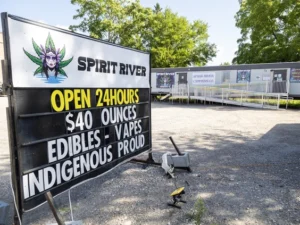




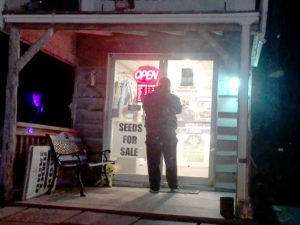
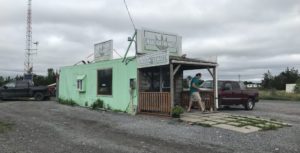

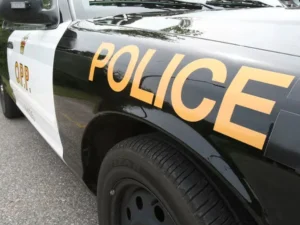
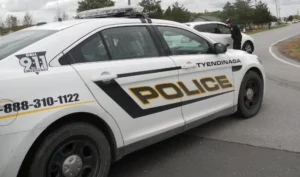
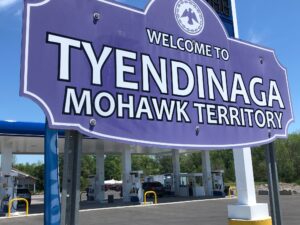
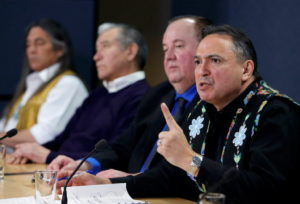

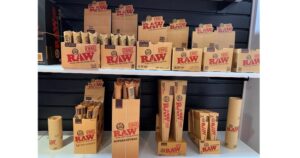

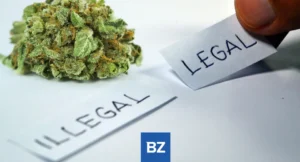
Comments are closed.